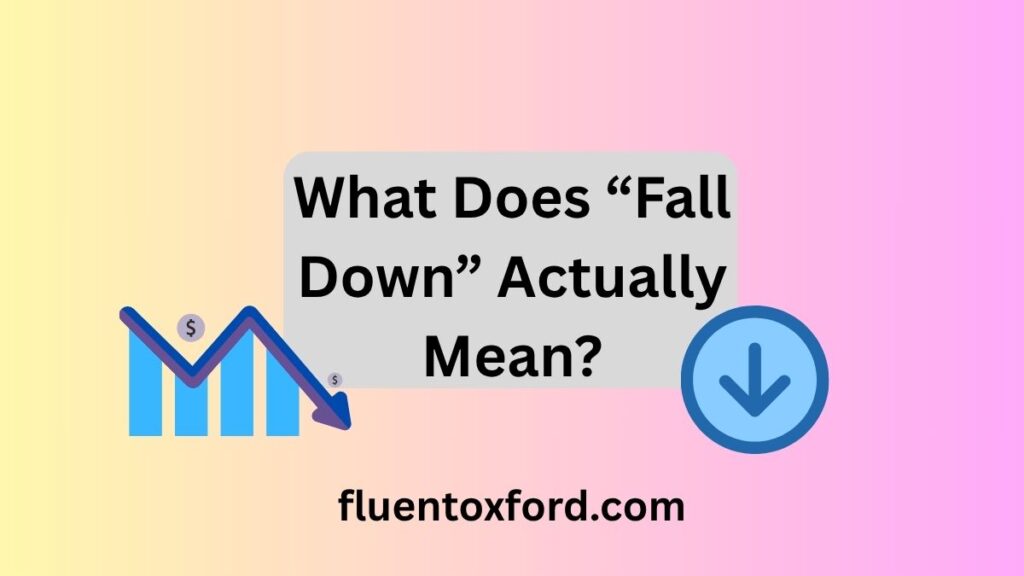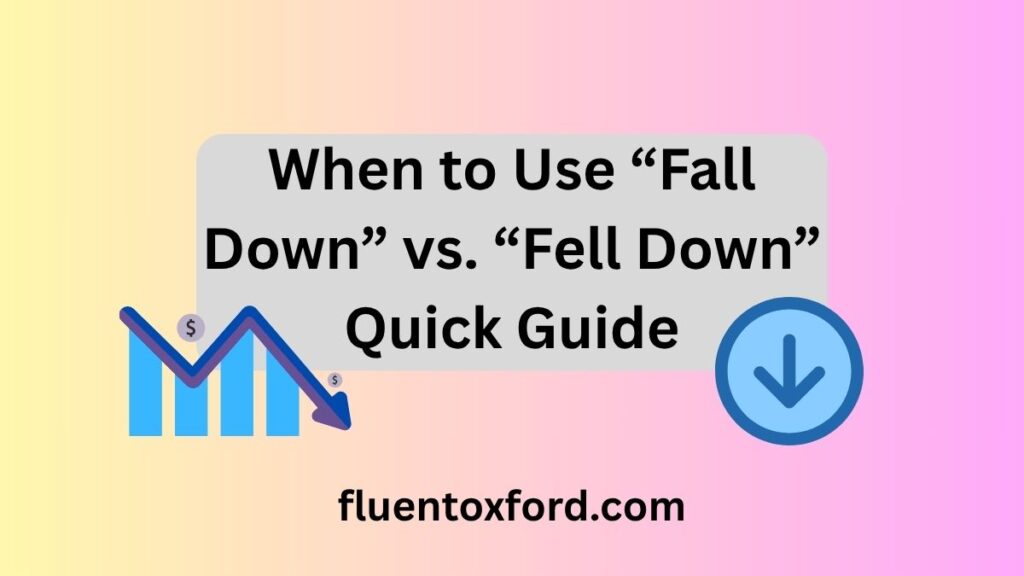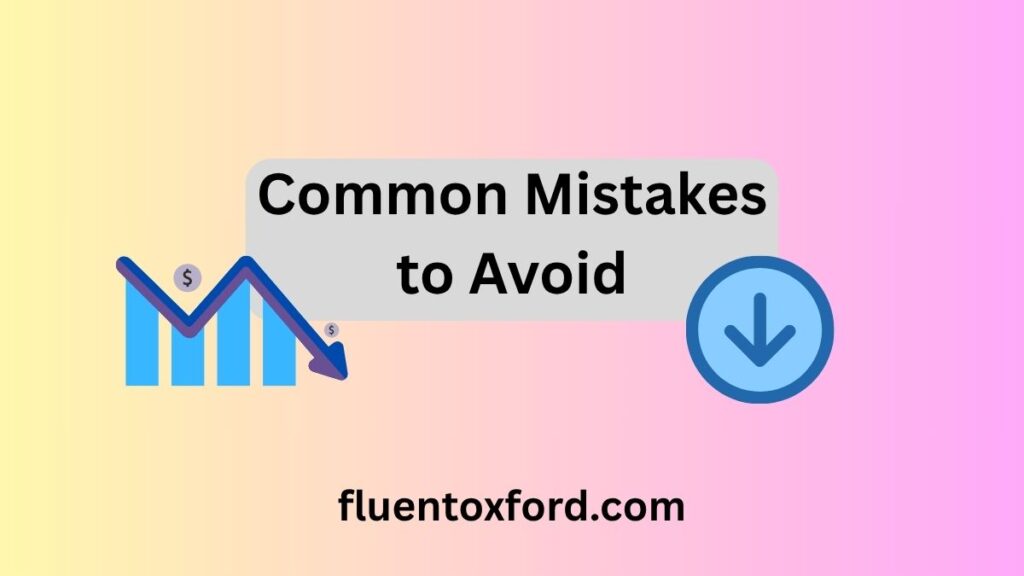The phrase “What’s the past tense of fall down Explained with Examples” focuses on understanding how to correctly express this common action in different time frames. In English grammar, “fall down” describes the action of moving from a higher position to a lower one, often by accident or due to loss of balance. When describing this action in the past, the verb changes to “fell down,” which is an irregular form. This topic provides essential guidance on using “fall down” and “fell down” correctly with simple, relatable examples.
Mastering the correct verb tense can make your speech and writing sound natural and confident. This guide offers not just explanations, but also plenty of engaging examples to help you fully understand the concept. Whether you are learning English or brushing up on grammar skills, this is the perfect chance to strengthen your understanding with clear and easy-to-follow examples.
In “What’s the past tense of fall down? Explained with Examples,” you’ll find a detailed breakdown of sentence structures, practical usage, and helpful tense tables. The topic “What’s the past tense of fall down? Explained with Examples” also highlights common mistakes and shares valuable tips to avoid them. By the end of “What’s the past tense of fall down? Explained with Examples,” you’ll confidently know how to use the phrase correctly in daily conversations and writing.
Why Do People Get Confused About “Fall Down”?
Many English learners mistakenly say falled down instead of fell down. It sounds like it should follow the simple rule of adding -ed to form the past tense, right? But English loves its exceptions, and this is one of them. Fall down is part of a tricky group called irregular verbs.
Quick Fact:
Irregular verbs don’t follow the standard past tense pattern. Instead of adding -ed, they change form completely.
People mix this up because English has many regular verbs that feel more predictable. When you fall into the trap of thinking all verbs work the same way, mistakes happen.
What’s the Past Tense of Fall Down?
The past tense of fall down is fell down.
Let’s be clear:
- Present tense: fall down
- Past tense: fell down
- Past participle: fallen down
You can’t say falled down. That’s grammatically incorrect. Instead, you should say fell down when describing something that happened in the past.
Why Is the Past Tense “Fell Down” and Not “Falled Down”?
This is where irregular verb patterns make things interesting.
Understanding Irregular Verbs
In English, verbs usually form their past tense by adding -ed. For example:
- Walk → walked
- Jump → jumped
But irregular verbs don’t follow this rule.
Here’s a quick comparison:
| Verb | Present | Past | Past Participle |
| Walk | walk | walked | walked |
| Jump | jump | jumped | jumped |
| Fall | fall | fell | fallen |
Fall changes completely in its past forms.
Other verbs that work this way:
- Go → went → gone
- Run → ran → run
- See → saw → seen
There’s no fixed formula. You simply have to memorize irregular verbs like fall down as part of your language learning journey.
What Does “Fall Down” Actually Mean?

The phrase fall down means to descend quickly and accidentally. It often happens when someone loses balance, trips, or stumbles.
Fall Down Meaning:
- To tumble suddenly
- To drop to a lower position
- To collapse unexpectedly
- To plummet from standing to ground
- To topple due to instability
Real-Life Scenarios:
- A child learning to walk might fall down often.
- A runner could fall down during a race.
- A tree might fall down in a storm.
The phrase always involves movement from a higher position to a lower one, usually caused by an accident or a loss of balance.
English Tense Table: Fall Down Forms at a Glance
Here’s a simple verb tense table to help you master fall down in all its forms:
| Tense | Verb Form | Example Sentence |
| Present | fall down | I fall down when I lose balance. |
| Past | fell down | Yesterday, I fell down on the sidewalk. |
| Past Participle | fallen down | I have fallen down many times before. |
\Keep this table handy while learning English verbs to avoid common mistakes.
The Origin and Evolution of “Fall Down”
The word fall comes from the Old English feallan, meaning “to drop from a height or lose one’s footing.” Over time, the phrase fall down became a more casual way to describe someone or something moving downward quickly, often by accident.
According to Etymonline, the earliest use of fall dates back to the 10th century. It originally connected to physical movement, but now it’s also used metaphorically, like fall in love or fall apart.
The additional word down emphasizes the direction, making the phrase more specific.
Example:
- Fall could mean to drop in general.
- Fall down specifically means moving downward to the ground.
When to Use “Fall Down” vs. “Fell Down” – Quick Guide

Understanding when to use each form is key to mastering English verb tenses.
- Use “fall down” when talking about something happening right now or something that happens regularly.
- Use “fell down” when describing something that happened in the past.
Quick Memory Trick:
If you’re telling a story that happened yesterday, always say fell down.
Example:
- ❌ Incorrect: Yesterday, I fall down the stairs.
- ✅ Correct: Yesterday, I fell down the stairs.
Sentence Usage: Present and Past Examples
Examples with Fall Down (Present Tense)
- I usually fall down when I run too fast.
- Kids fall down when they’re learning to ride bikes.
- People sometimes fall down when walking on ice.
- I sometimes fall down when the floor is slippery.
- Children often fall down while learning to walk.
- Be careful, you might fall down if you run too fast.
- The old fence looks like it will fall down soon.
- Leaves make the sidewalk slippery, and people can easily fall down.
- When I wear high heels, I feel like I could fall down at any moment.
- The books on the top shelf sometimes fall down if I shake the table.
- He always laughs when someone pretends to fall down in a funny movie.
- During storms, weak trees often fall down across the road.
Examples with Fell Down (Past Tense)
- She fell down during the marathon last week.
- I fell down in front of the entire class yesterday.
- They fell down after slipping on wet floors.
- Yesterday, I slipped on the wet floor and fell down.
- The child fell down while running in the playground.
- She lost her balance and fell down the stairs last night.
- He fell down after tripping over a loose stone on the path.
- The heavy box fell down from the top shelf.
- During the race, my friend stumbled and fell down.
- The old tree fell down after the strong wind.
- I fell down in front of everyone and felt so embarrassed.
- The glass fell down from the table and broke into pieces.
These examples show clear grammar explanations and help you apply the correct tense naturally.
Synonyms of Fall Down and Fell Down
Sometimes, you might want to use alternative words to fall down to make your writing or speaking more interesting. Let’s explore some options.
Present Tense Synonyms for Fall Down
- Trip: I trip over my shoelaces often.
- Tumble: The toddler tumbles on the soft carpet.
- Stumble: They stumble on uneven sidewalks.
- Topple: The boxes topple when stacked too high.
- Drop: She drops suddenly after losing balance.
Past Tense Synonyms for Fell Down
- Tripped: He tripped over the loose rug.
- Tumbled: The cyclist tumbled off the bike yesterday.
- Stumbled: I stumbled and twisted my ankle.
- Collapsed: The old chair collapsed under pressure.
- Toppled: The tower toppled during the windstorm.
Using synonyms of fall down helps you avoid repetition and adds variety to your writing.
Common Mistakes to Avoid

Even fluent speakers sometimes trip over this verb. Let’s clear up the most frequent errors.
Mistake 1: Using “Falled Down”
- ❌ Incorrect: I falled down the stairs.
- ✅ Correct: I fell down the stairs.
Tip: “Falled” isn’t a word. Always use fell down for past tense.
Mistake 2: Confusing “Fell” and “Felt”
- Fell = past tense of fall down
- Felt = past tense of feel
Example:
- ❌ Incorrect: I felt down at the party.
- ✅ Correct: I fell down at the party.
Mistake 3: Misusing “Fallen Down”
- “Fallen down” is the past participle. It must follow words like have, has, or had.
Example:
- ✅ Correct: I have fallen down many times.
Quick Quiz: Test Your Understanding
Let’s see how much you’ve learned. Choose the correct verb form.
1. Yesterday, my brother ____ down the hill.
a) fall
b) fell
c) fallen
2. I always ____ down when I run too fast.
a) fall
b) fell
c) fallen
3. She has ____ down twice this week.
a) fall
b) fell
c) fallen
Answers:
1 – b) fell
2 – a) fall
3 – c) fallen
Summary Table: Quick Reference
| Verb | Present | Past | Past Participle |
| Fall Down | fall down | fell down | fallen down |
Keep this chart in mind whenever you’re unsure. It’s a quick way to remember how to use fall down in a sentence.
Conclusion
In conclusion, What’s the past tense of fall down? Explained with Examples helps you understand how to use the correct verb form in simple sentences. The past tense of “fall down” is “fell down,” and this is an important part of using proper English grammar. Knowing when and how to use “fall down” and “fell down” will make your speaking and writing clear and correct.
By learning What’s the past tense of fall down? Explained with Examples, you can avoid common mistakes and improve your confidence. The simple examples and easy tense table make this topic fun and helpful for everyone. Keep practicing with the tips from What’s the past tense of fall down? Explained with Examples to become even better at using English in daily life.
FAQs
What is the correct past tense of “fall down”?
The correct past tense is “fell down”, not “falled down.”
Is “falled” a word in English grammar?
No, “falled” is grammatically incorrect. The proper past tense of “fall” is “fell.”
What is the past participle of “fall down”?
The past participle is “fallen down” and it’s used with helping verbs like “have” or “has.”
Can you say “I have fell down”?
No, the correct form is “I have fallen down.” Use “fallen” with “have,” not “fell.”
Is “fall down” still commonly used in modern English?
Yes, “fall down” is frequently used in both casual conversation and written English today.

As an admin at Fluent Oxford, Maida Queen is the driving force behind our vibrant learning community. With a deep passion for English language education, she ensures that our platform remains a dynamic, engaging, and supportive space for learners worldwide.
Maida expertly manages content, assists users with their grammar and fluency queries, and fosters an interactive environment where learning feels effortless and enjoyable. Whether you need guidance, motivation, or just a friendly face in the Fluent Oxford community, Maida is always there to help you reach your English language goals.








